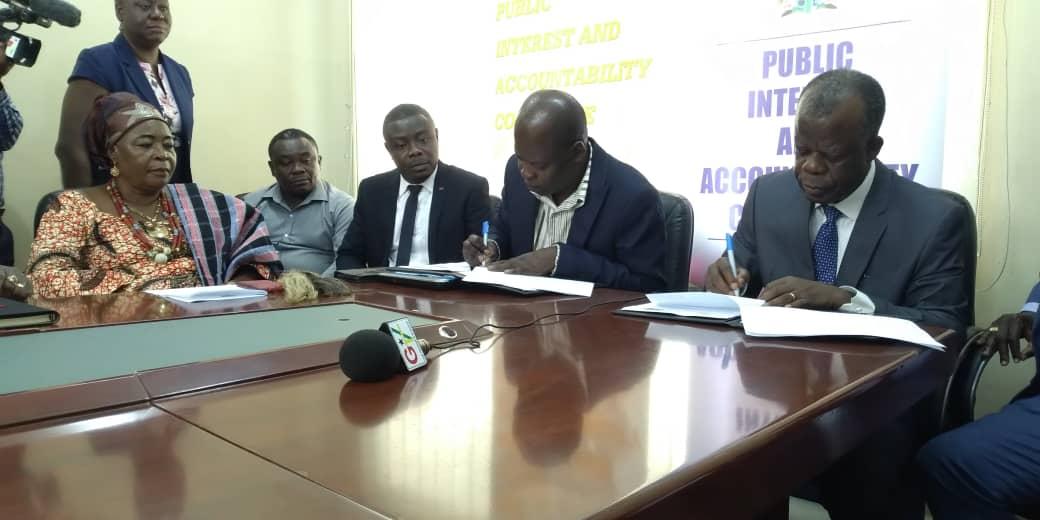The Public Interest and Accountability Committee (PIAC), on Monday, signed a Memorandum of Understanding (MoU) with the Economic and Organised Crime Office (EOCO) to work together to investigate the utilisation of state revenue from petroleum and gas to prevent wanton embezzlement and criminal abuse.
The MoU would thus enable the partners to collaborate towards safeguarding the petroleum revenues from criminal abuses with the view of combating economic and
It would also ensure efficient, transparent and accountable management of the revenue to support national infrastructural development and welfare of the people.
At the signing ceremony in Accra,
It was against that backdrop that the two institutions, with distinct, but mutually reinforcing mandates, agreed to work together.
Outlining the terms of reference of the Agreement,
Additionally, PIAC would avail itself to EOCO during investigations, where and when necessary, while EOCO was supposed to update PIAC at regular intervals on the progress made on its investigations.
Consequently, upon the conclusion of its investigations, EOCO is supposed to submit a formal report to PIAC, highlighting its investigative findings and intended actions.
However, the MoU would not restrict PIAC from participating in similar activities or arrangements with other entities or government agencies.
More so, the Agreement would last for five years from the date of signature, unless revised or terminated by written agreement of the Parties and they might review the provisions of the MoU annually for successful implementation.
“It is our conviction that the PIAC-EOCO collaboration will serve as a useful example of how state agencies with similar mandates can collaborate, rather than compete to achieve their common objective,
“We are hopeful and looking forward to serving the national interest much better, through the collaborative pursuit of our respective accountability mandates”.
Again, the Office could investigate economic issues the State had an interest in it, including tax evasions, money laundering and serious
He said EOCO had collaborated with international agencies, such as
“In time past, people saw EOCO as a monster institution and that one was not supposed to go to, and sometimes when you invited a friend to visit EOCO, they would come with a lawyer,” he stated.
“That system is fading out rapidly that explains why we have a Charter. In the Charter, you lodge your complaint with us and you later come and ask the state of the complaint that was reported, and we have every right to tell you where we have reached and where we’re going,”
The EOCO Boss gave the assurance that it would work together with PIAC and sometimes invite them to join the investigations so that it would be knowledgeable about the outcome of the investigation.
After the investigation, he said, the report would be submitted to the Attorney-General’s Office and it was within the purview of the Attorney-General to determine whether to proceed with the prosecution of a case or otherwise.

